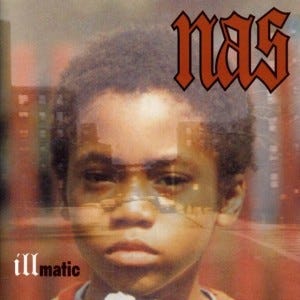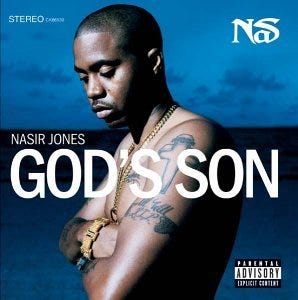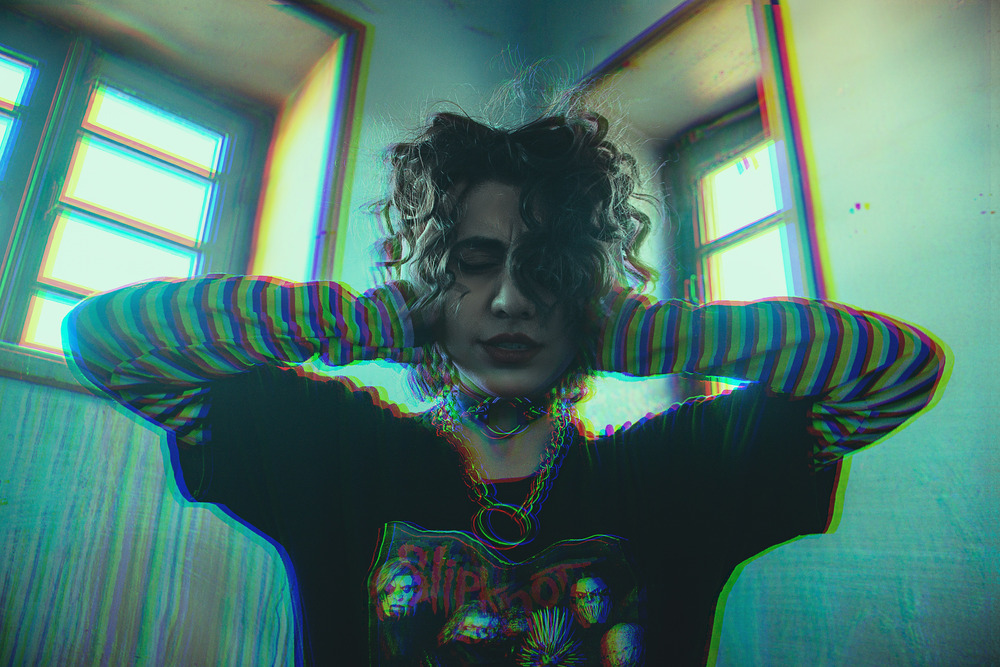Books & Culture
Nas, the Narrator: On Publishing & Hip-Hop Storytelling

Over drinks in a beer garden in Manhattan — the Flatiron building pointed at our backs — my editor and I considered the short story, and wondered why it remains unpopular in today’s reading world. The short story form is approximately 250 years old, perhaps older, and yet it still makes demands of the reader, a hostage negotiation seemingly ad infinitum — to participate in a short story is to acknowledge and accept, then embrace, a certain level of dissatisfaction. There is seldom the closure found in movies or novels. Names elicit frustration. “Nowhere…is the names so relentless,” writes Elif Batuman for N+1, “as in the first sentences, which are specific to the point of arbitrariness.” There’s little money in the short story as a source of income, which provides at best a threadbare existence for writers with subsistence from adjunct professor positions or a full-time job in an industry completely separate from storymaking. As for the writers themselves, they write thousands of short stories often, but not always, in preparation for their first novels, short stories that are often, but not always, reduced to excremental prose generated by and in service of a larger, future, superior work. Many readers are allergic to short stories and the brief worlds conjured, then populated with characters, and shaped with plot. Playing the role of a god appears far more interesting than reviewing the god’s schoolwork to test against craft, as if that’s all short stories have to offer.
My editor and I didn’t solve the anti-short-story equation, but we did think about the marvel and rarity of a perfect collection. I remembered Denis Johnson’s Jesus’ Son. That book is a heroin addict nodding off in a bathroom stall, his head resting against the wall where someone carved the koan: Poets are shit. Yet for all the book’s pleasures, its devotion to the cracked human apparatus, Jesus’ Son is still not perfect, unlike the timeless Illmatic by Nasir Jones (Columbia, 1994) — each listen adds to the sublime, nostalgic effect the album continues to have on me, increasing over time, still, a closed, elegant, spiritual loop.
The connection between story collections and albums is clear. An album, as a form, isn’t restricted only to the sensibilities and habits of the novel — skipping tracks isn’t the same as skipping chapters, for instance, where doing the latter causes the reader to miss the introduction of a new character, a new setting, and all the little nuances and revelations that might inspire a character to make a different set of decisions. Skipping a track is often of little consequence to the listener. The act, for me at least, is a simple matter of taste. Sometimes a song is no good, or not as good as the rest of the album. Similarly, there is little at stake when skipping a short story while reading a collection (unless of course if the stories are linked). As self-contained worlds, the stories which comprise a collection are not directly impacted by the strength or weakness of the previous and proceeding piece. The collection, much like an album, is considered in whole, as an entire experience from beginning to end. A weak story is a weak story, which doesn’t affect the stories around it, but it can mar the collection’s reading experience.
A weak story is a weak story, which doesn’t affect the stories around it, but it can mar the collection’s reading experience.
If presented with a choice, I’d rather discuss classic hip-hop albums than short story collections: the former evokes warmth, my need to consecrate my life to a certain fidelity and pure aural bliss channeled into nighttime sessions in the bedroom, lights off, completely enveloped by sound, while the latter invokes the image of a bottomless pit. Nevertheless, my fascination with and general uneasiness toward Nas connects directly to Illmatic, specifically to its perfection, its infallibility. Nas is an artist, a well-read, old-school recluse in a world which demands bombast, a gaudiness he aspired to at one point in his career. Ostentatiousness bogged down his art. Accordingly, he provides for me a cautionary tale as I revisit his sixth album God’s Son (Ill Will/Columbia, 2002), released with a bit of fanfare. Nas defeated Jay-Z — hyphenated at the time — and reestablished himself as the so-called King of New York, a triumph for the former Queensbridge Houses resident who ventured into the world no older than twenty, armed with a work of art in his backpack, and achieved outsized popularity, fame, wealth, and status, returning home to New York older, perhaps wiser, but nonetheless weary. God’s Son was a victory lap, but ultimately a mediocre one, yet I love the lyrics.

Nas is a world-class storyteller and practitioner of the narrative form. I don’t understand why there isn’t more discussion around hip-hop’s literary value among today’s millennial-and-boomer intelligentsia. The new New York literary salon is a twenty-something black woman whispering conspiratorially with a fifty-something white woman with regards to the diversity question: The optics alone leave me wobbly in the corner of the room, the bourbon’s Gaussian blur fogging my eyes. The house party — somewhere in SoHo, let’s say — is packed, and while I might hear the DJ play Future and/or Drake from Spotify, and the crowd is locked in, and not necessarily dancing — more like swaying — but definitely enjoying themselves, I wonder if this music is truly understood for all of its artistic value. I make a note on my phone to later write an essay about hip-hop and literature, but in what hopes? Sometimes, an essay is designed to convince; others ramble, but at least this isn’t a thinkpiece on culture from a writer too young to rent a car.
Anyway, “Made You Look” from God’s Son is dope. Nas is in rare form as he ascends the throne with a decidedly New York anthem. The sample, from the single “Apache” by Incredible Bongo Band, makes the difference. I cannot resist the click.
From Wikipedia:
The Incredible Bongo Band, also known as Michael Viner’s Incredible Bongo Band, was a project started in 1972 by Michael Viner, a record artist manager and executive at MGM Records. Viner was called on to supplement the soundtrack to the B-film The Thing With Two Heads. The band’s output consisted of upbeat, funky, instrumental music. Many tracks were covers of popular songs of the day characterized by the prominence of bongo drums, conga drums, rock drums and brass.
“Apache” is a popular sample, most famously used by The Sugarhill Gang. It gives “Made You Look” the movement it requires; otherwise, it’s a backpacker joint and the world doesn’t need any more of that bloodless music. Conscious hip-hop sought to wake the mind yet it often dulled the senses, a circumstance of sleepy soul samples chopped, screwed, sped up, and flipped over tinker toy drum beats. Mediocre music frustrates me, and God’s Son is as mediocre as it gets, yet it is not entirely unredeemable.
Inspired by trauma, God’s Son followed the death of Nas’s mother, Ann Jones, years after her initial breast cancer diagnosis. Described as a “personal” album, God’s Son is, to me, pragmatic, the gospel according to one of hip-hop’s biggest stars. Death has a grounding effect; the soul doesn’t soar, but takes root and immobilizes itself in the name of repair. For Nas’s sake, this crystallization is rendered into matter-of-fact verses, although imagery is still present. “If Virgin Mary had an abortion/I’d still be carried in a chariot/by stampeding horses,” from the track “The Cross,” is an amazing hook, both holy and severe. But one must endure the tepid beat; Eminem, mercurial emcee, occasionally terrorizes the genre with his attempts at beat-making. His shaky ear is evident when listening to the overproduced beat — too many unnecessary layers, an annoying piano provides the groove, a random record scratch appears, and there are timpani, a sign for any rap producer that the beat has jumped the shark.
Despite the genre’s much-ballyhooed and garish excess, the heart of the music lies in its minimalism. Two turntables and a microphone is not a truism, but a sensibility, a declaration of need, a rejection of artifice. There is a reason why three generations of hip-hop practitioners have plundered “Funky Drummer” — Clyde Stubblefield gifted to humanity the universal beat, the singular drum. Beatmakers and rappers heard the universe’s heartbeat, the throb, and harnessed it. But instead of using what god had provided, Eminem decided to take matters in his own hands, with Nas’s acquiescence.
Despite the genre’s much-ballyhooed and garish excess, the heart of the music lies in its minimalism. Two turntables and a microphone is not a truism, but a sensibility, a declaration of need, a rejection of artifice.
One can only imagine Nas’s career if guided by DJ Premier, one of the holy quartet who produced Illmatic, but I can only look at the career as it has been presented to me. This would include, unfortunately, the track “Oochie Wally” from the compilation album Nas & Ill Will Records Presents QB’s Finest. (The sample, from “Bambooji” by Gong, is a great and noteworthy find.) The ignominious single, the proverbial chain around the neck of Nas’s ghost, is lauded for its awfulness, a singularity in which the street cred Nas had generated, and dangerously squandered, but not entirely exhausted up to this point in 2000, finally collapsed. Centered around male-dominated sex — random, anonymous, casual, group — “Oochie Wally” is particularly odious, a veritable career-ender of a song. No wonder Stillmatic — a dog whistle of a title, for sure — was released a year after “Oochie Wally,” followed a year later by God’s Son. The need for personal, pragmatic music as contrast to the gloss was evident.

But I returned to God’s Son for one track: “Last Real Nigga Alive,” a narrative peek — however warped — into the machinations of the black creative elite. This track, at first glance, fits nicely into modern hip-hop’s knack for emotional spillage, for messy music used as catharsis for messier lives posited as fantasies worthy of pursuit for the masses who, with 9-to-5 jobs, can’t afford to squander $60,000 at Magic City. But this is all surface. “Last Real Nigga Alive” is effective due to its depth, assuming you believe Nas, the narrator, who sees it all, even if he only sees it his way. Dating back to sometime in the early 1990s, he recalls how now-legendary rap collaborations were formed, how friendships ended, and how petty squabbles ultimately short-circuited ambition. This is rap history according to him, with appearances by the Wu-Tang Clan, the Notorious B.I.G., Puff Daddy (his name at the time), and of course Jay-Z: as King of New York, Nas sets the record straight, the emperor delivering the word from the Garden. I see similarities between the rap world and my own — literary publishing — as artists jockey for sales and attention, fight for consumers’ hearts and wallets, and crave longevity, not only in terms of a career, but with respect to legacy. I don’t know what it means that I can find so many parallels and intersections between rap and literature, particularly as it pertains to someone like me. For over a decade, I respected Nas for “Last Real Nigga Alive,” but it’s only now I see why.









